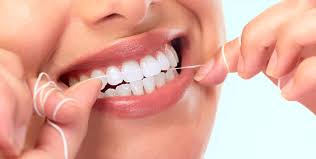Believe it or not ,but your teeth are what make your smile beautiful .With the passage of time most of us don’t pay any attention to our dental health.Taking care of your teeth and gums as you get older can prevent problems like toothaches, cavities (tooth decay), and tooth loss. A healthy mouth also makes it easier for you to eat well and enjoy food.
It’s especially important to take care of your teeth and gums if you have a health condition like diabetes or heart disease – or if you are taking medicines that can cause oral health problems.
Follow the steps below to keep your teeth and gums healthy as you get older.
- Brush and floss your teeth every day.
- Brushing and flossing helps remove dental plaque, a sticky film of bacteria (germs). If plaque builds up on your teeth, it can cause cavities or gum disease.
- Brush your teeth with fluoride toothpaste twice a day. Brush after breakfast and before bed.
- Floss between your teeth every day. If flossing is hard for you, ask your dentist about using a special brush or pick instead.
- Watch for changes in your mouth.
Your risk of getting oral cancer increases as you get older. If you see any changes in your mouth, it’s important to get them checked out.
See a doctor or dentist if you have any of these symptoms for more than 2 weeks:
- A spot in your mouth, lip, or throat that feels uncomfortable or sore
- A lump or thick area in your mouth, lip, or throat
- A white or red patch in your mouth
- Difficulty chewing, swallowing, or moving your jaw or tongue
- Numbness in your tongue or mouth
- Swelling in your jaw
- Pain in one ear without hearing loss
- See your dentist regularly for a checkup and cleaning.
There’s no single rule for how often people need to see the dentist – it varies from person to person. The next time you get a checkup and cleaning, ask your dentist how often you need to come in. - Talk to your doctor about dry mouth.
- Dry mouth means not having enough saliva (spit) to keep your mouth wet. Dry mouth can make it hard to eat, swallow, or talk. It can also lead to cavities or infection.
Dry mouth can be a side effect of some kinds of medicine. It can also happen if you have certain health problems (like diabetes) or if you are getting chemotherapy or radiation (treatments for cancer).
If you have dry mouth, you don’t have to live with it. Talk with your doctor or dentist and ask what you can do.
Practice healthy habits.
- Eat healthy and cut down on sugary foods and drinks. This can help prevent cavities – and it’s good for your overall health.
- Don’t smoke or use other tobacco products. Smoking cigarettes, chewing tobacco, or using snuff puts you at higher risk for oral cancer. Smoking also increases your risk for gum disease.
- If you drink alcohol, only drink in moderation. This means no more than 1 drink a day for women or 2 drinks a day for men. Heavy drinking increases your risk of oral cancer.
🔥50 Views






